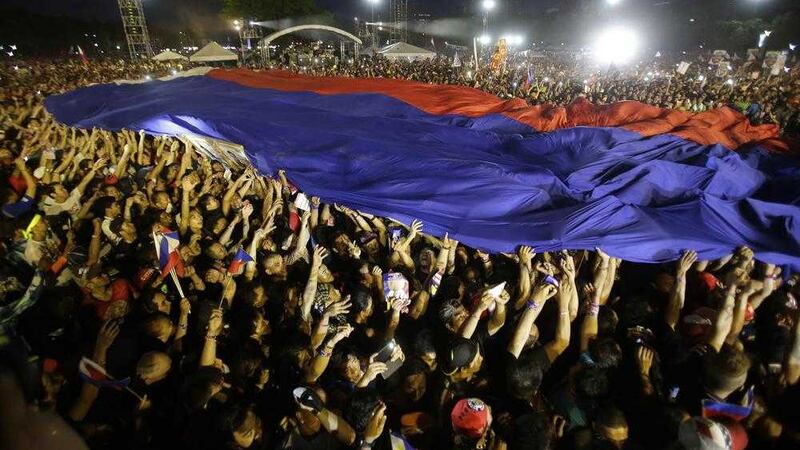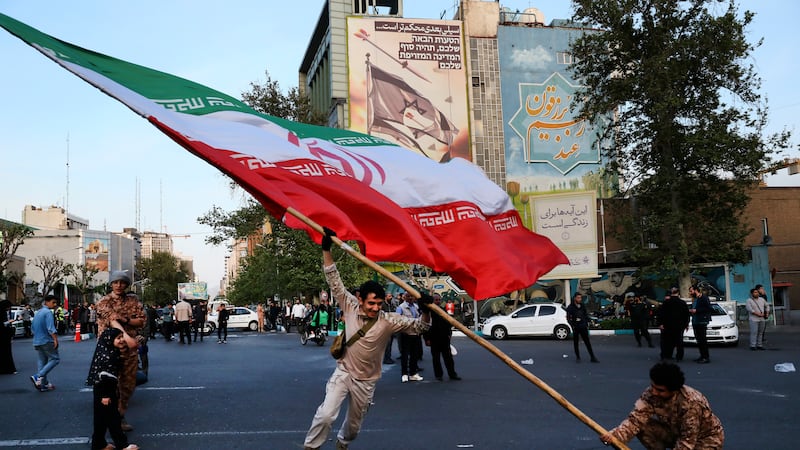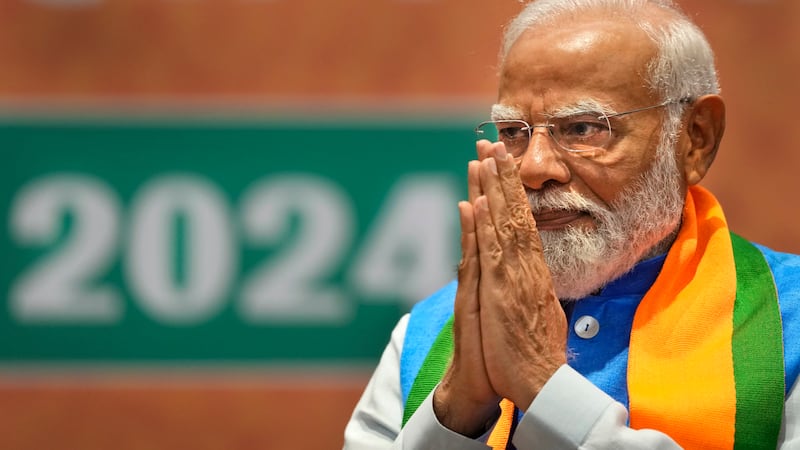A FOUL-MOUTHED, crime-busting mayor many compare to Donald Trump is the man to beat in the Philippines presidential election as voters weary of poverty, corruption and uprisings in the hinterlands look for a radical change at the top.
Rodrigo Duterte, mayor of the southern Davao city, has led in voter-preference surveys, with a bold promise to wipe out crime and corruption in three to six months if he wins.
That has resonated among voters but also sparked alarm and doubts about electing someone with no national political experience and a tendency to make inflammatory remarks.
"All of you who are into drugs, you sons of bitches, I will really kill you," Mr Duterte told a huge cheering crowd on Saturday in his final campaign rally in Manila.
"I have no patience, I have no middle ground, either you kill me or I will kill you idiots."
It is remarks such as these that have won him favour among the masses, and opprobrium among the political elite. Outgoing President Benigno Aquino called Mr Duterte a threat to democracy as he campaigned for his candidate, former interior secretary Mar Roxas.
Three other candidates are vying to succeed Mr Aquino in one of Asia's liveliest democracies and more than 45,000 candidates are contesting 18,000 national, congressional and local positions in elections that have traditionally been tainted by violence and accusations of cheating, especially in far-flung rural areas.
At least 15 people have been killed in elections-related violence and more than 4,000 arrested for violating a gun ban, according to police.
"Let us show the world that despite our deep passion and support for our candidates, we can hold elections that are peaceful and orderly and reflect the spirit of democracy," said Mr Aquino, who cast his ballot after standing in line for more than an hour with other voters in a Manila constituency.
Commission on Elections chairman Andres Bautista said no major glitches were expected in the voting despite the massive logistical challenges.
About 55 million Filipinos have registered to vote in 36,000 voting centers across the archipelago of more than 7,100 islands, including in a small fishing village in a Philippine-occupied island in the disputed South China Sea.
The brash Mr Duterte, who has been compared to US Republican front-runner Donald Trump for his propensity for provocative statements, has threatened to close down congress and form a revolutionary government if he wins and faces stonewalling legislators.
A critical senator has also threatened to file an impeachment complaint against Mr Duterte, accusing him of large-scale corruption and hiding questionable funds in secret joint bank accounts with his daughter. Mr Duterte denies the allegations.
In final campaigning on Saturday, Mr Aquino warned voters that Mr Duterte could be a dictator in the making and urged them not to support him. He cited the rise of Nazi leader Adolf Hitler as an example of how a despotic leader can gain power and hold on to it without public resistance.
Filipinos have been hypersensitive to potential threats to democracy since they rose in a 1986 "people power" revolt that ousted dictator Ferdinand Marcos, who faced allegations of plundering the poor country and condoning widespread human rights violations by state forces. In 2001, a similar uprising forced Joseph Estrada from the presidency over alleged large-scale corruption.








